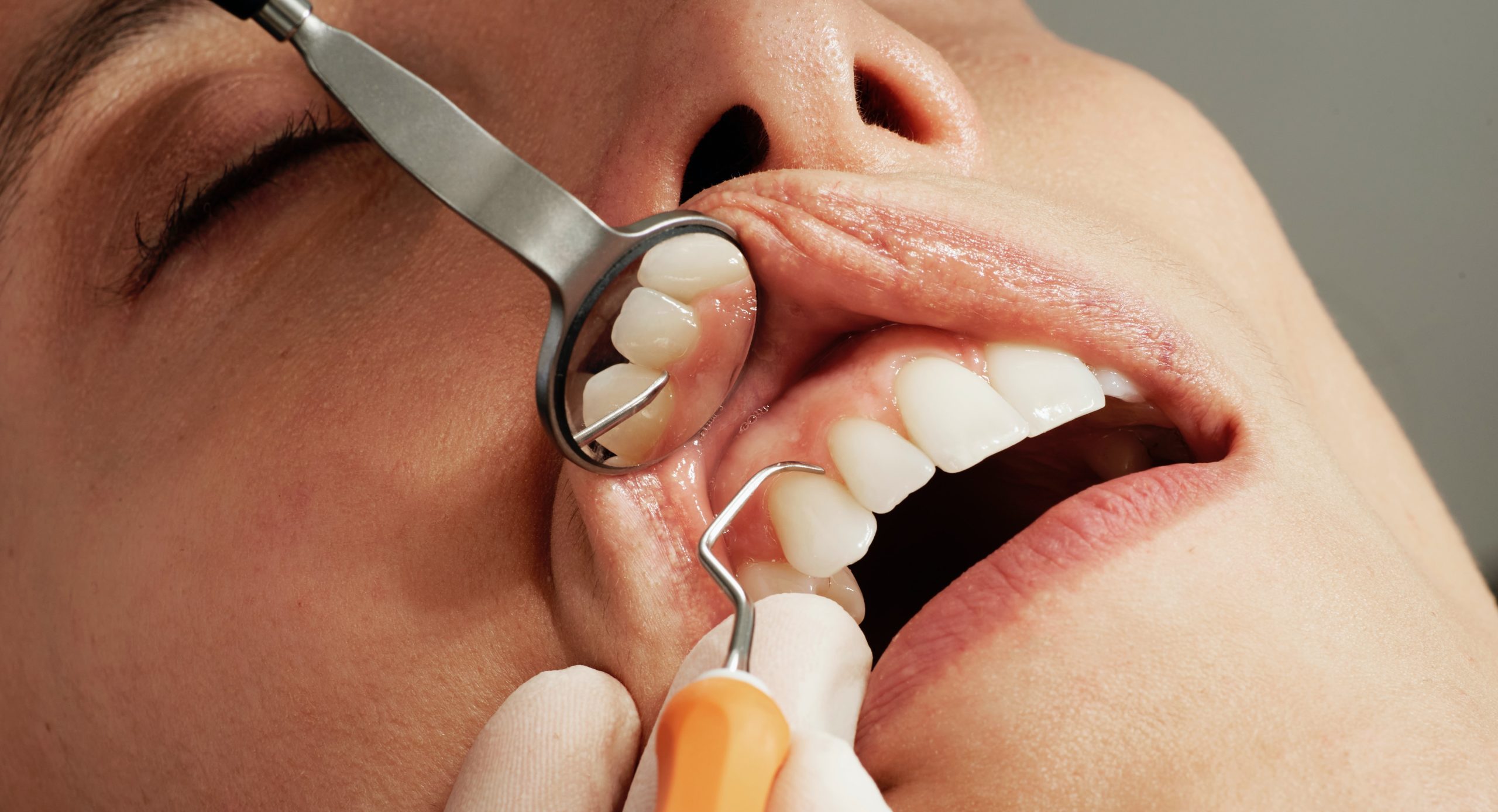 Nada Khan is an Exeter-based NIHR Academic Clinical Fellow in general practice and GPST4/registrar, and an Associate Editor at the BJGP. She is on Twitter: @nadafkhan
Nada Khan is an Exeter-based NIHR Academic Clinical Fellow in general practice and GPST4/registrar, and an Associate Editor at the BJGP. She is on Twitter: @nadafkhan
One of my enduring memories from medical school is watching dental students walking around campus with a full set of teeth attached to a keyring, studying incisors closely under lamps in the library and puzzling over molars in group tutorials. ‘THAT is weird…’, I used to think. No doubt, the dentists thought it was fairly bizarre when medical students lined up to borrow skeletons from the anatomy department. The vision of people walking around scrutinising a set of teeth underlined to me how little of the undergraduate medical curriculum covered oral medicine, and how little I knew about those mysterious teeth on a key ring.
There is a separation in what doctors and dentists learn about oral medicine, and GPs should not attempt to manage dental issues without the appropriate skills and training. The BMA is clear: GPs are not responsible for treating dental problems. But then, it gets unclear again. Dental abscesses are not uncommonly seen in primary care. GPs have an ethical responsibility to offer help in an emergency, and NICE recommends that while GPs should emphasise to patients the need to seek treatment from a qualified tooth person as soon as possible, GPs should manage dental abscesses in primary care ‘in the absence of immediate attention by a dentist’.1 But what happens if you’re not really sure it’s definitely a dental abscess? And what if your patient is telling you they can’t access an emergency dentist? Caught in the middle of this circular argument, inevitably, is the patient.
GPs do see, and act on dental issues.
GPs do see, and act on dental issues. Research published back in 2016 in the BJGP showed an average rate of dental consultations across CPRD practices of 6.06 per 1000 patient-years which seems low, but some practices saw a lot of dental problems (with rates up to 29.8 per 1000 patient-years) and just over half (57.1%) of the dental consultations resulted in the prescription of an antibiotic.2 There is no single reason why patients consult their GPs for dental problems, but some might do so because it’s easier, quicker or cheaper than accessing a dentist.3 Despite where patients go, or how GPs act, the definitive treatment for a dental abscess is not a course of antibiotics, but incision and drainage, root treatment or extraction. Antibiotics do not prevent severe complications and could potentially delay presentation to a dentist and worsen outcomes.4
…the definitive treatment for a dental abscess is not a course of antibiotics, but incision and drainage, root treatment or extraction.
The Covid-19 lockdowns exacerbated wait times for dental treatment. The British Dental Association estimates that over a year’s worth of NHS dental appointments have been lost due to Covid, with ‘patients now presenting with higher levels of need, having stored up problems as a result of ongoing access problems’.5 The workload is higher, but the volume of work seen by NHS dentists has decreased since pre-pandemic levels, with no real plan for increasing NHS dentistry activity. Almost 9 in 10 NHS dental practices are not accepting new adult patients, and of those practices that are accepting new patients, 17% reported a wait time for a first appointment of over a year. Alongside lockdown pressures, the underlying factors for a decline in NHS dentistry services include a failure of the target-based contract between dentists and the NHS with some dentists working at a profit loss, a depletion of the NHS dentistry workforce, and lack of real-terms NHS pay uplifts.6 None of these are problems with an easy fix to suggest we can see a turnaround for increased access to NHS dentistry services in the short-term. To add to the mix, we have a new government and a new Health Secretary who has adopted a health care typology by telling us that her priorities are ‘ABCD’, with D for doctors and dentists. The priorities might be clear, but the solutions are not.
Where does all of this leave GPs (and our emergency department colleagues) who are faced with potentially increasing numbers of dental presentations in light of declining availability of NHS dentistry services? Some GPs advocate for more rigorous gatekeeping and strictly declining any requests for dental treatment at first contact.7 Management of dental problems is problematic for GPs who are not qualified or indemnified to do. On the other hand, where access to a dentist is limited, some GPs may feel compelled to try and manage dental presentations. Should medics learn more about oral medicine at an undergraduate and postgraduate level? I’ll leave that open to discussion, and perhaps reflection, as we are increasingly forced to consider the shape of our role in the dental health of our patients.
References
- Dental abscess: Management: National Institute for Health and Care Excellence; 2022 [Available from: https://cks.nice.org.uk/topics/dental-abscess/management/management/.
- Cope AL, Chestnutt IG, Wood F, Francis NA. Dental consultations in UK general practice and antibiotic prescribing rates: a retrospective cohort study. Br J Gen Pract. 2016;66(646):e329-36.
- Cope AL, Wood F, Francis NA, Chestnutt IG. Patients’ reasons for consulting a GP when experiencing a dental problem: a qualitative study. Br J Gen Pract. 2018;68(677):e877-e83.
- Robertson DP, Keys W, Rautemaa-Richardson R, Burns R, Smith AJ. Management of severe acute dental infections. BMJ. 2015;350:h1300.
- NHS Dentistry: New figures show service on its last legs [press release]. British Dental Association, 15 August 2022.
- Failure to halt record-breaking cuts to real incomes with fuel exodus from NHS [press release]. British Dental Association, 19 July 2022.
- Howard S. The dentistry crisis “lapping at the doors of primary care”. BMJ. 2022;377:o1249.
Photo by Caroline LM on Unsplash






